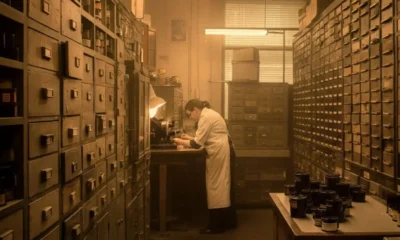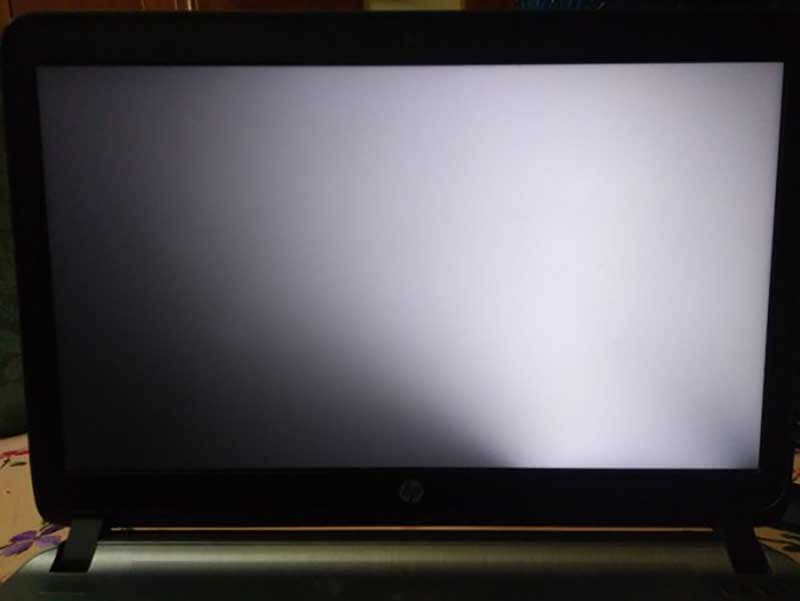Health
A to Z of Kidney Function Tests
To understand kidney function tests(otherwise known as a renal panel), it is imperative to understand the functions of the kidneys. The kidneys work to filter the blood and expel unwanted waste out of the bloodstream and then they exit the body. Kidneys are also known to remove excess water from the human body, facilitating in regulating blood pressure and fluid balance of the body.

All happens when the kidneys are in good shape. When they are functioning well, there is a low quantity of unwanted waste present in the body. When the levels of such waste in the blood start to climb up, they indicate that the kidneys are not functioning as well as they should.
As the name suggests, kidney function tests help measure whether the kidneys are in good working condition. Most of these kidney or liver blood tests check how well the kidneys are able to clear waste from the body. The test may involve either a blood test, a 24-hour urine sample test, or both. You can expect to obtain the test results on the same day or it could take a few days as well.
If you have confusion before taking the test and want to gather some information about how this test works, you are in the right place. Keep on reading to learn more. Before going further into the topic, let us know what the test is all about.
Symptoms that you may have kidney problems
Symptoms that could indicate a problem with your kidneys are:
- Blood in the urine
- High blood pressure
- Frequent urges to pee
- Difficulty starting urination
- Painful urination
- Swelling of the hands and feet could also occur due to a buildup of fluids
A single symptom may not indicate anything serious. However, if occurring simultaneously, in combination with other symptoms could suggest that your kidneys are not working properly. This is when you need to do a kidney function test to determine the reason.
What are Kidney Function Tests?
Private kidney function tests involve urine or blood tests that help gauge how well your kidneys are functioning. They are helpful in measuring glomerular filtration rate or GFR. It evaluates how efficiently your kidneys clear the waste from the system.
What Is the Function of Kidneys in Our Body?
The kidneys are part of our urinary system. There are two kidneys that lie in the back of the abdomen below your ribcage. They help your body filter waste materials with urine. The kidneys in our bodies are essential for creating:
- Hormones that maintain the body’s blood pressure
- Red blood cells that carry oxygen throughout the body
- Vitamin D that maintains our bone and muscle health
[H2] Why Might You need a Kidney Function Test?
Some conditions like diabetes and high blood pressure caused by hypertension tend to affect the natural function of the kidneys. If you are diagnosed with any of these conditions, your doctor may use kidney function tests to monitor the nature of these conditions.
Sometimes, you may need a kidney function test if you experience symptoms that indicate possible kidney concerns. These symptoms will include:
- Blood in your urine, which is also known as hematuria
- Painful urination or dysuria
- Frequent urge to urinate
- Issues while trying to pee
What Are the Types of Kidney Function Tests?
Your doctor may need one or a few different types of kidney function tests. You may have blood tests for kidney function, such as:
Blood urea nitrogen test or BUN measures nitrogen (obtained after protein breakdown) in the circulatory system (blood).
Estimated GFR or eGFR is conducted to calculate filtration rates depending on the protein levels, gender, age, size, and race.
Serum creatinine looks for the accumulation of creatinine, a waste product obtained from the breakdown of muscle tissue.
Your doctor may also need 24-hour urine tests, which include:
- Microalbuminuria looks for a specific protein known as albumin.
- Urinalysis helps to gauge your urine to check the condition of blood, protein levels and kidney function.
During a Kidney Urine Test- What to Expect?
If you wish, you can do a 24-hour urine test at your home. For a 24-hour urine test, your doctor will provide you with a container to collect the urine sample. On the day of the kidney test:
- You need to urinate in the toilet as usual once you wake up in the morning.
- For the rest of that day, you will need to urinate in a container.
- On day two, you will have to pee in the container after waking up in the morning.
- After that, you will need to send the urine sample off to the laboratory or a doctor’s office.
A Kidney Function Test Involves
To take the test, you will need to visit your healthcare provider or the laboratory to obtain a blood sample. The technician then uses a small needle and test tube to obtain the blood sample.
What to Expect After a Kidney Test?
Private liver function tests are usually simple. They do not cause any side effects. However, after taking the blood test, some may experience:
- Dizziness
- Bruising
- Fatigue
Blood and urine tests usually do not end up causing pain or any other complications to worry about. You will want to call your healthcare provider if you experience fatigue, pain, or other symptoms that do not go away after a certain point of time.
When Should You Expect to Know the Results of a Kidney Function Test?
How soon you obtain the blood test results can vary. Sometimes, your doctor’s provider discusses the results of your kidney test on the same day. Or he or she may send the sample to a laboratory. In that case, you may receive results after a few days.
What do the kidney test results mean?
Kidney test results can help indicate whether your kidneys are working well or not. Most kidney function tests look for two major measurements, including:
- A GFR of less than 60 means you have kidney disease.
- A urine albumin-to-creatinine ratio or UACR of more than 30 milligrams/gram could also be a warning sign of kidney issues.
What if the test results indicate early kidney disease?
If the kidney test results indicate unsatisfactory results, your doctor will follow up with you about kidney your treatment options. You may have to take medications to manage your blood pressure.
Or you may want to follow up with a nephrologist or a kidney specialist.
If the test results are atypical, your doctor will want to order more frequent kidney function tests in the future. Regular testing helps your healthcare provider to track your health and any other underlying conditions.
Treatment
Your healthcare provider will focus on treating the underlying condition first if the tests indicate early kidney disease. He or she will prescribe medicines to control your blood pressure if the results suggest hypertension. They will also advise you to modify your lifestyle and dietary habits.
If you have diabetes, your doctor may want you to refer an endocrinologist. They specialize in metabolic diseases and can ensure you have the best blood glucose control.
If there are other underlying causes of your abnormal kidney function tests, your doctor will take measures to manage those disorders.
Health
Guide to Buying Testosterone Propionate Safely and Effectively

Testosterone propionate is one of the most popular anabolic steroids favored by bodybuilders, athletes, and individuals looking to enhance their physical performance, recovery, and overall testosterone levels. If you’re considering buying testosterone propionate, you may come across testosterone propionate for sale from various sources. It’s essential to understand its uses, benefits, safety guidelines, and where to find trusted sources for high-quality products. This guide will give you a clear breakdown of everything you need to know before making a purchase.
What is Testosterone Propionate?
Testosterone propionate is a short-acting ester of testosterone, a naturally occurring hormone responsible for muscle growth, fat loss, and many other critical functions in the body. The propionate ester attached to the testosterone molecule allows for a slower release of the hormone into the bloodstream after injection compared to pure testosterone. This makes it effective, but it also requires more frequent injections.
Due to its fast-acting nature, testosterone propionate is often used for:
- Muscle gain and fat loss
- Boosting strength and endurance
- Enhancing recovery times
- Treating low testosterone levels (hypogonadism)
Medical professionals prescribe it for clinical conditions like testosterone deficiency, but it is also used off-label for performance enhancement.
Benefits of Testosterone Propionate
If you’re searching for “buy testosterone propionate” or “testosterone propionate for sale,” you’re likely aware of its many benefits. Here’s why it has gained popularity among users:
1. Rapid Results
Due to its short half-life, testosterone propionate acts quickly in the body. Users often report feeling the effects, such as improved energy and strength, within just a few days of starting the cycle.
2. Lean Muscle Growth
It’s a popular choice for building lean muscle without excessive water retention, which is common with longer-acting testosterone esters. This makes it ideal for bodybuilders during cutting cycles.
3. Enhanced Performance
Testosterone propionate improves overall strength, endurance, and recovery, helping athletes perform at their peak and bounce back from intense training sessions.
4. Better Hormonal Balance
For individuals dealing with testosterone deficiency, testosterone propionate injections can help restore hormonal balance and alleviate symptoms like fatigue, low libido, and mood swings.
5. Flexible Dosage Control
Its short half-life provides users with greater control over dosage and cycle adjustments compared to long-acting esters. This makes it easier to manage potential side effects.
Potential Side Effects of Testosterone Propionate
While testosterone propionate can bring significant benefits, it is not without potential risks and side effects, especially if used improperly. Here are the most common side effects to consider:
- Estrogen-related issues: Excess testosterone can convert to estrogen, leading to water retention, gynecomastia (enlargement of breast tissue in men), and mood swings.
- Androgenic side effects: These include acne, hair loss (in individuals prone to male pattern baldness), and increased oiliness of the skin.
- Suppressed natural testosterone production: Over time, exogenous testosterone can suppress your body’s natural testosterone production.
- Injection site irritation: Some users report pain, redness, or swelling at the injection site due to the propionate ester.
- Other risks: Increased cholesterol levels, elevated blood pressure, and liver strain may occur with prolonged or improper use.
If you notice any side effects, consult a healthcare professional immediately. It’s crucial to monitor your health during any hormone-related treatments.
How to Use Testosterone Propionate Safely
1. Consult a Healthcare Professional
Before considering testosterone propionate, speak with a healthcare provider for professional advice. They will evaluate your health, check your testosterone levels, and assess whether you’re a suitable candidate.
2. Start with Low Doses
For beginners, it’s advisable to start with a lower dose (e.g., 50-100 mg every other day) and gradually increase as needed. This minimizes the risk of adverse effects.
3. Monitor Your Cycle
Testosterone propionate cycles usually last between 6 to 12 weeks. Keeping the cycle duration within recommended timelines helps limit the risk of long-term side effects.
4. Use Ancillary Medications
Medications like aromatase inhibitors (e.g., Anastrozole) can help manage estrogen levels, while post-cycle therapy (PCT) drugs like Clomid or Nolvadex may aid in restoring natural testosterone production.
5. Follow Proper Injection Techniques
Administer testosterone propionate injections intramuscularly with sterile needles. Make sure to rotate injection sites to reduce irritation and scarring.
6. Regular Blood Work
Throughout your cycle, regular blood tests are vital to monitor testosterone levels, liver function, cholesterol, and other markers of health.
Where to Buy Testosterone Propionate
With so many options available, knowing where to buy high-quality testosterone propionate is critical. Poor-quality or counterfeit products can pose significant health risks. Here are some tips for finding trusted sources:
1. Verify Vendor Reputation
Look for suppliers with a longstanding reputation in the market. Online forums, reviews, and recommendations from experienced users can point you toward reliable sources.
2. Check Product Quality
Make sure the product is pharmaceutical-grade, lab-tested for purity, and free of harmful contaminants. Trusted suppliers often provide certificates of analysis (CoA).
3. Confirm Legal Status
Testosterone propionate is a controlled substance in many countries. Ensure you are purchasing it legally, as regulations vary depending on your location.
4. Avoid Unrealistic Promotions
Be cautious of vendors offering products at unusually low prices or making exaggerated claims. High-quality testosterone propionate comes at a cost, and overly cheap offers should raise red flags.
5. Purchase Through Licensed Medical Providers
If you’re using testosterone propionate for medical purposes, obtain it through a licensed physician or pharmacy to ensure safety and legality.
Is Testosterone Propionate Right for You?
If you’re searching for “testosterone propionate injections” or exploring your options for performance enhancement, it’s important to first evaluate your goals and health needs. Testosterone propionate can deliver excellent results when used responsibly, but the decision to use it should not be taken lightly.
Whether you’re looking to enhance your athletic performance or address low testosterone levels, having the correct guidance and resources will make all the difference.
Final Thoughts and Next Steps
Testosterone propionate offers unique benefits for muscle growth, fat loss, and hormonal balance. However, safety should always be the top priority. By understanding how it works, managing its side effects, and sourcing it from reputable suppliers, you can maximize its potential.
If you’re ready to take the next step, consult a medical professional or a certified fitness expert to guide you through your options. With the proper knowledge and support system, you can safely and effectively enhance your performance and well-being.
Health
Serum Protein Electrophoresis: What Is It, and When Should It Be Done?

Serum protein electrophoresis (SPE) is a test of your kidneys. It can be performed on a sample of blood, and it can be done along with many other tests to help diagnose kidney disease.
To ascertain if an emergency, such as acute kidney damage (AKI), requires prompt intervention, SPE can be carried out as soon as possible—that is, within one week after the probable commencement. If you have AKI, then SPE should be done after the condition has stabilized for at least 48 hours so that any kidney abnormalities are more evident.
SPE is a test of your kidneys. It can be performed on a sample of blood, which must be collected early, within one week of suspected onset. The sample may have been drawn at any time during the illness, but most physicians recommend that it be taken within 24 hours after the patient’s symptoms first appeared.
Other tests that are more specific for finding a specific disease include:
- Tests for renal function include blood urea nitrogen (BUN) and creatinine clearance.
- Bone marrow biopsy. This is done if you have a high risk of having certain types of cancer. It can also be used when someone has been exposed to certain chemicals or radiation and thinks they may have been exposed to those substances or situations that cause cancer in some people.
A bone marrow biopsy involves removing a small portion of tissue from the hip bone so that medical professionals may examine how effectively the patient’s body heals after an accident or surgery. like this one right now!
If you suspect that you have hematuria, talk with your doctor about whether SPE is right for you and how soon after starting treatment you should request one so they can complete it fast enough to prevent bleeding into urine from worsening symptoms.
This test is often performed on blood samples obtained from individuals who have been subjected to certain chemicals or have had other environmental exposures or have a family history of a certain disease. that may be related to their condition(s). The greater the number of samples gathered from individuals with similar circumstances and varying onset ages, the greater the probability of discovering a solution—even if it does not pertain to your offspring!
In general, the more difficult the combination of diseases you are dealing with, the more samples you will need from different people. The reason is simple: Your chances of finding a diagnosis increase as your number of samples increases.
SPEP Test is a test to detect antibodies in the blood. It can be used to diagnose many kidney diseases, but it’s most useful for detecting SLE. SPE samples must be collected early — within one week of suspected onset. SPE tests usually take about 30 minutes and cost less than $50; however, this depends on your insurance coverage and other factors.
SPE is a powerful tool for testing blood. It can detect certain substances in the blood and determine if there are any diseases or disorders in the body. While other tests can be performed in addition to SPE, it is one of the most crucial ones since it aids in the detection of numerous different types of problems with your health.
Serum protein electrophoresis (SPE) is intended to identify the presence of antibodies against antigens related to connective tissue diseases (CTDs), such as SLE and psoriasis. Other tests are more specific for finding a specific disease; however, SPE can be performed on a sample of blood if no definite diagnosis has been made yet.
Health
Exploring Different Types of Bras for Yoga

Yoga is a lovely exercise regimen that blends physical activity with mental calmness and spiritual well-being. Yoga requires the correct equipment, which includes a comfortable and supportive bra, to be completely appreciated. The appropriate types of bras for yoga can offer the required support, improve flexibility, and permit unfettered movement.
People wear several bra styles that are suitable for yoga, taking into account elements like support, comfort, breathability, and flexibility. People with huge breasts can choose from a variety of bra styles.
In this piece, we’ll dig into the different types of bras for yoga with a variety of styles designed to enhance your yoga practice.
1. Sports Bra
When it comes to yoga, sports bras are a popular choice due to their excellent support and versatility. These bras are designed to minimize movement, reduce strain on breast tissues, and provide the required support during dynamic yoga poses. Look for sports bras that offer medium to high-impact support, preferably with moisture-wicking properties to keep you cool and dry during hot yoga sessions. Adjustable straps and a wide underband are additional features to consider, ensuring a personalized fit and optimal comfort.
2. Low-Impact Bralette
A low-impact bralette can be an excellent option for those seeking a more relaxed and gentle yoga practice. These bras are typically made from soft, breathable fabrics and offer minimal support. They provide a comfortable, barely-there feel while allowing for unrestricted movement. Bralettes are perfect for slower-paced yoga styles like Hatha or Yin yoga, where the emphasis is on deep stretching and relaxation rather than intense physical activity.
3. Racerback Bra
If you prefer a bra that offers enhanced support, flexibility, and freedom of movement, a racerback bra is worth considering. Straps on racerback bras come together in the back to form a “V” shape. This design not only provides additional support to the shoulders but also allows for a wide range of motion in the arms and upper back. They are particularly beneficial for yoga styles that involve arm balances, inversions, and dynamic movements like Vinyasa or Ashtanga yoga. Look for racerback bras with moisture-wicking properties and adjustable straps for a customizable fit.
4. Cross-Back Bra
For yogis who value both support and style, cross-back bras are a popular choice. These bras feature straps that cross in the back, creating an attractive and unique design. Cross-back bras provide excellent support to the shoulders and upper back, allowing for unrestricted movement in various yoga poses. They are ideal for yoga styles that incorporate backbends and twisting movements, such as Kundalini or Power yoga. Seek cross-back bras made from moisture-wicking fabrics with a supportive underband to ensure maximum comfort during your practice.
5. High-Neck Bras
High-neck bras offer extra coverage and support, making them ideal for yogis who prefer a more modest look or require additional stability during intense movements. These bras feature a higher neckline that helps prevent excessive movement and offers support to the chest area. High-neck bras often have thicker straps and a more substantial band under the bust, ensuring a secure fit and reducing the risk of discomfort. They are available in various support levels and materials, so you can find the perfect high-neck bra that suits your personal style and yoga practice.
Conclusion
In conclusion, exploring different types of bras for yoga is essential for achieving comfort, support, and freedom of movement during your practice. Yoga is a physical and mental discipline that requires focus and relaxation, and having the right bra can greatly enhance your overall experience.
During yoga, your body moves in various positions, including forward bends, inversions, twists, and backbends. Each of these poses demands flexibility, stability, and proper alignment. A well-fitted bra specifically designed for yoga can support your chest and back, allowing you to move with ease and confidence.
You May Also Like
Hot Yoga Vs Pilates Which One Is Better?
FAQS
Q: What is a yoga bra?
A: A yoga bra is a specialized sports bra designed specifically for yoga and other low-impact activities. It provides support, comfort, and flexibility, allowing for a full range of motion during yoga poses.
Q: Why is it important to wear a yoga bra during yoga practice?
A: Wearing a yoga bra is essential for several reasons. Firstly, it offers proper support to the breasts, minimizing discomfort and potential strain during yoga movements. It also helps to reduce breast movement, preventing any distractions or discomfort while practicing yoga poses. Additionally, a yoga bra provides a sense of security and confidence, allowing you to focus on your practice without worrying about your attire.
Q: How is a yoga bra different from a regular sports bra?
A: While both yoga bras and regular sports bras provide support during physical activities, yoga bras have certain features that make them more suitable for yoga practice. Yoga bras often have a softer and more lightweight construction, with minimal padding or underwire. They are designed to allow for unrestricted movement and breathability, ensuring comfort and flexibility during yoga poses.
Q: Can I wear a regular bra instead of a yoga bra for yoga practice?
A: While it is possible to wear a regular bra during yoga, a yoga bra is specifically designed to meet the unique needs of yoga practitioners. Regular bras may not provide the same level of support, flexibility, and comfort required for the various movements and positions in yoga. It is generally recommended to wear a yoga bra to enhance your yoga experience.
-

 Business3 months ago
Business3 months agoWhat to Know Before You Start a Business?
-

 Travel2 months ago
Travel2 months agoSave on Campervan Rentals with a roadsurfer Gutscheincode
-

 Travel2 months ago
Travel2 months ago10 Things to Do in Punta Mita
-

 Travel2 months ago
Travel2 months agoBest Things to Do in New York City – Ultimate Travel Guide
-

 Real Estate2 months ago
Real Estate2 months agoHow to Be the Best Real Estate Agent Murfreesboro
-

 Real Estate2 months ago
Real Estate2 months agoFind the Best Real Estate Agents Main Line
-

 Real Estate2 months ago
Real Estate2 months agoExplore New Real Estate Programs in Marrakech
-

 Photography3 months ago
Photography3 months agoThe Ultimate Guide to 35mm Film Developing Lab


















